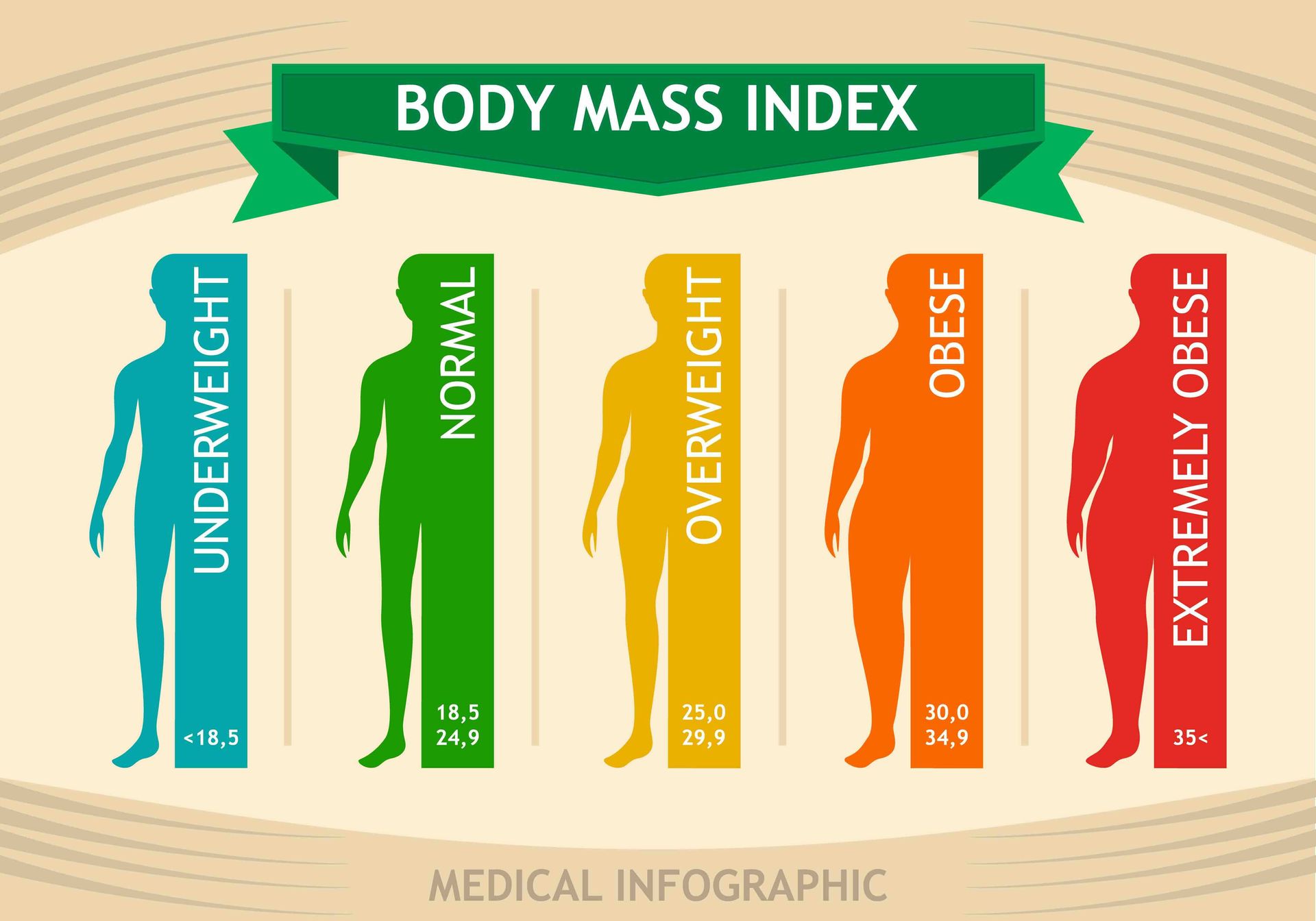The Astonishing Effects of Obesity and Weight Management
Obesity is a pressing issue that affects millions worldwide. It is far more than just a number on a scale; obesity profoundly influences physical health, mental well-being, and even social relationships. While this condition has been studied for decades, it remains a growing concern with no single solution. Understanding the effects of obesity and the importance of weight management is crucial for improving health and quality of life.
Are you or someone you care for suffering from obesity or other potential eating disorders? Schedule an appointment with us at Family Medical Center in Lake Odessa, MI to discuss your specific situation.

Understanding Obesity
Obesity is defined as an abnormal or excessive accumulation of body fat that presents a risk to health. It is commonly measured using the Body Mass Index (BMI), a simple ratio of weight to height.
While BMI is not a perfect indicator, it provides a general guideline for identifying individuals who may be at risk. If you are not sure about your BMI and other aspects of your health right now, it’s important to connect with a compassionate family care physician in Lake Odessa, MI.
The causes of obesity are multifaceted, involving a combination of genetic, environmental, and behavioral factors. Overeating, physical inactivity, and poor dietary choices are well-known contributors. However, less obvious factors like hormonal imbalances, stress, and lack of sleep also play a significant role. Modern lifestyles, which often include long hours sitting at desks and easy access to calorie-dense foods, make it increasingly challenging to maintain a healthy weight.
The Physical Consequences of Obesity
The health risks associated with obesity are staggering. Obesity increases the likelihood of developing chronic conditions such as type 2 diabetes, cardiovascular diseases, and certain types of cancer. It can also lead to joint problems, as excess weight puts undue stress on bones and cartilage. Sleep apnea, a condition where breathing stops intermittently during sleep, is another common issue linked to obesity.
Furthermore, obesity can weaken the immune system, making individuals more susceptible to infections. The strain on the body’s organs and systems can lead to a reduced life expectancy. These physical consequences underscore the importance of addressing obesity early and effectively.
One of the most prominent effects of obesity is its impact on metabolic health. Excess fat tissue disrupts normal metabolic functions, contributing to insulin resistance and ultimately type 2 diabetes.
People with obesity often experience elevated blood sugar levels, which, if left unmanaged, can result in severe complications such as kidney failure, nerve damage, and vision problems. Additionally, the accumulation of abdominal fat is strongly associated with higher levels of bad cholesterol (LDL) and lower levels of good cholesterol (HDL), increasing the risk of plaque buildup in arteries, heart attacks, and strokes.
Joint problems, particularly osteoarthritis, are another serious consequence of obesity. Carrying extra weight amplifies the mechanical load on joints, especially in the knees and hips, leading to faster wear and tear of cartilage.
Over time, this can cause chronic pain and mobility issues, significantly reducing the quality of life for affected individuals. Beyond the musculoskeletal system, obesity can also impair respiratory function. Excess fat around the chest and abdomen restricts lung expansion, making breathing more difficult and increasing the risk of respiratory conditions such as asthma and sleep apnea.
The effects of obesity extend to the body’s endocrine and immune systems. Adipose tissue is not just a storage site for energy but also an active endocrine organ that produces hormones and inflammatory chemicals. In people with obesity, the overproduction of these substances can result in chronic inflammation, which weakens the immune response and creates a favorable environment for the development of diseases like cancer.
Finally, obesity's toll on physical health is reflected in its impact on life expectancy and the quality of life of a person in their senior years.
Studies consistently show that severe obesity can reduce lifespan by as much as 10–14 years. This stark statistic highlights the need for preventive measures, early intervention, and sustainable lifestyle changes. Addressing obesity is not just about aesthetics but about safeguarding long-term health and well-being.

The Emotional and Psychological Impact
Beyond the physical effects, obesity has profound psychological implications. Many individuals with obesity experience low self-esteem, anxiety, and depression. The stigma associated with being overweight can lead to social isolation and discrimination, further exacerbating mental health challenges.
The societal pressures to conform to specific body standards often compound these struggles. Constant exposure to media portrayals of idealized body types can leave individuals with obesity feeling inadequate or unworthy.
This negative self-image can foster a cycle of emotional eating, where food becomes a coping mechanism for stress and sadness, perpetuating the condition. For many, the emotional toll of obesity extends to feelings of guilt and shame, especially when attempts to lose weight fail, reinforcing a sense of helplessness.
Children and adolescents are particularly vulnerable to the emotional effects of obesity. Bullying and teasing in schools can leave lasting scars, affecting their confidence and academic performance. Social exclusion during formative years can interfere with developing healthy relationships and coping mechanisms, leaving them more prone to anxiety and depression in adulthood. Family dynamics also play a role, as well-meaning but critical comments from loved ones can unintentionally worsen feelings of inadequacy.
For adults, workplace bias and limited opportunities for social interaction create additional stress. Discrimination based on weight can hinder career advancement and job satisfaction, leading to financial strain and feelings of unworthiness. This bias is not only unfair but also perpetuates stereotypes, making it harder for individuals to break free from the psychological burdens of obesity.
Additionally, the mental health challenges tied to obesity often create barriers to seeking help. Many individuals feel judged or dismissed by healthcare professionals, which can discourage them from accessing the support they need. Addressing obesity requires compassion and understanding, not just from professionals but from society as a whole, to reduce stigma and encourage a more inclusive and supportive environment for those affected.
The Science of Weight Management
Weight management is a complex process that goes beyond simply eating less and moving more. It requires a holistic approach that considers physical, emotional, and environmental factors. Understanding the science behind weight management can empower individuals to make informed decisions.
One critical component of weight management is creating a calorie deficit—burning more calories than are consumed. However, not all calories are created equal. Nutrient-dense foods, such as fruits, vegetables, lean proteins, and whole grains, provide essential vitamins and minerals while keeping calorie intake in check. In contrast, processed and sugary foods can lead to spikes in blood sugar and cravings, making weight loss more difficult.
Exercise plays an equally important role. Physical activity not only burns calories but also improves cardiovascular health, boosts mood, and enhances overall fitness. For sustainable results, incorporating enjoyable and achievable activities, such as walking, dancing, or swimming, is crucial.
The Role of Behavior and Mindset
Behavioral and psychological factors are key to successful weight management. Building healthy habits takes time and consistency. Mindful eating, which involves paying attention to hunger cues and savoring each bite, can prevent overeating. Setting realistic goals and celebrating small victories along the way can keep individuals motivated.
A positive mindset is equally important. Weight loss journeys often come with setbacks, but resilience and self-compassion can make a significant difference. Seeking support from friends, family, or professional counselors can provide the encouragement needed to stay on track.
To further enhance success, it is essential to identify and address triggers for unhealthy behaviors. Stress, boredom, and emotional distress often lead to overeating or indulging in less nutritious food choices. Developing alternative coping mechanisms, such as engaging in physical activity, practicing relaxation techniques, or pursuing hobbies, can help manage these triggers. Journaling emotions or food intake can also offer insights into patterns and promote accountability.
Additionally, cultivating a growth mindset can transform the way individuals approach challenges. Viewing setbacks as opportunities for learning rather than failures helps to maintain momentum. For example, if an individual strays from their eating plan during a holiday or stressful period, they can reflect on what happened, adjust their strategies, and move forward without guilt.
Building a supportive environment is another critical aspect. Surrounding oneself with people who encourage healthy choices can reinforce positive behaviors. Sharing goals with a supportive community, whether in person or online, can create a sense of accountability and belonging. Even small changes in the home environment, such as keeping nutritious foods visible and minimizing the presence of less healthy options, can make healthier choices more convenient.
Ultimately, weight management is not just about following a strict regimen but about embracing a sustainable lifestyle. By focusing on behavior, mindset, and a supportive environment, individuals can create long-lasting change.

Key Takeaways
The effects of obesity are wide-ranging, affecting individuals, families, and societies. While the challenges are significant, the solutions are within reach. By understanding the causes and consequences of obesity, embracing a holistic approach to weight management, and fostering a supportive environment, we can combat this global health issue.
Every small step, whether it’s choosing a healthier meal, taking a walk, or supporting a loved one’s journey, contributes to a larger movement toward better health and well-being. Together, we can shine a spotlight on obesity and make meaningful strides toward a healthier future.
References
- World Health Organization. (2021). Obesity and overweight. Retrieved from https://www.who.int
- Finkelstein, E. A., & Strombotne, K. L. (2010). The economics of obesity. American Journal of Clinical Nutrition, 91(5), 1520S-1524S.
- National Institutes of Health. (2020). Health risks of being overweight. Retrieved from https://www.nih.gov
- Hill, J. O., & Wyatt, H. R. (2019). Role of physical activity in preventing and treating obesity. Journal of Applied Physiology, 113(11), 1844-1849.
- Swinburn, B. A., et al. (2011). The global obesity pandemic: Shaped by global drivers and local environments. The Lancet, 378(9793), 804-814.
- Wadden, T. A., & Bray, G. A. (2018). Handbook of obesity treatment. Guilford Press.
Your Family’s Health Is Our Priority
Your wellness matters to us. Take the next step in your care today.
1020 4th Ave
Lake Odessa, MI 48849
oFFICE HOURS
- Mon - Tue
- -
- Wed - Thu
- -
- Fri - Sun
- Closed
AFTER HOURS EMERGENCY CONTACT
1020 4th Ave
Lake Odessa, MI 48849
oFFICE HOURS
- Mon - Tue
- -
- Wed - Thu
- -
- Fri - Sun
- Closed
AFTER HOURS EMERGENCY CONTACT
All Rights Reserved
FAMILY MEDICAL CENTER
website designed by SPECK DESIGNS
All Rights Reserved | FAMILY MEDICAL CENTER
website designed by SPECK DESIGNS





